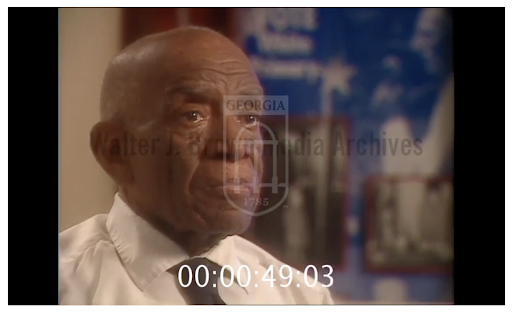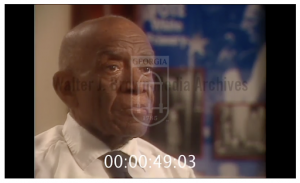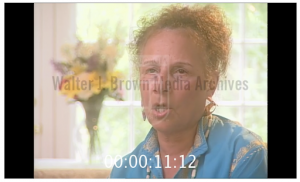The Digital Library of Georgia (DLG) announced today the 7 recipients of its latest set of digitization service awards. These awards expand the scope of the Georgia communities documented in the Digital Library of Georgia. Among the awardees are 5 new partners. Awardee projects include documentation of the Leo Frank trial and folk pottery of Northeast Georgia.
The GALILEO-funded program increases the diversity of contributors to the DLG and its content. The Breman Museum, the DeKalb History Center, the Folk Pottery Museum of Northeast Georgia, Island Ford Baptist Church, and the Suwanee First United Methodist Church are all new partners. These awards enhance the DLG’s coverage of the growth of Gwinnett and DeKalb counties and of elementary education in Clarke County. Materials covering the Leo Frank trial and its aftermath will supplement those currently available. Documentation of Georgia folk life and pottery traditions rounds out the awards.
The recipients and their projects include:
Athens-Clarke County Library
Chase Street PTO Scrapbooks
Digitization of 17 scrapbooks and one photo album of the Athens-based Chase Street Elementary School’s Parent Teacher Organization from 1926 to the early 2000s.
Atlanta History Center
John Burrison Folklore Archives Collection
Digitization of oral history interviews created between Fall 1973 and Fall 1977 by Georgia State University folklore students. The interviews discuss Southern crafts, storytelling, and traditions.
The William Breman Jewish Heritage Museum
Leo M. Frank Collection
Digitization and description of the materials highlighting the repercussions experienced by those who stood up for Leo Frank’s innocence.
DeKalb History Center
Digitizing DeKalb County plat map books
Digitization of DeKalb County plat map books that detail the subdivisions, streets, and property owners throughout the county from 1912 to 1936.
Folk Pottery Museum of Northeast Georgia
Folk Pottery Project
Digitization and description of the Folk Pottery Museum Collection, composed of more than 300 ceramic objects created by Georgia folk potters from the mid-19th century onwards.
Island Ford Baptist Church
Suwanee Creek Chapter, NSDAR Historic Preservation Project
Digitization and description of the records of Sugar Hill’s earliest church, Island Ford Baptist Church, dating from 1833 to 1917. The records document enslaved individuals and the early settlers of Gwinnett County.
Suwanee First United Methodist Church
Suwanee First United Methodist Church Historical Documents
Digitization and description of the records of the first church established in Suwanee, Georgia, that document the church’s marriages, baptisms, and deaths from the 1880s through the 1950s.
###
About the Athens-Clarke County Library
The Athens-Clarke County Library creates a welcoming and inclusive environment that empowers individuals and communities by providing resources that encourage discovery, imagination, and life-long learning. The Heritage Room, the headquarters of the Archives and Special Collections Department, is located on the 2nd floor of the Athens-Clarke County Library, 2025 Baxter St., Athens, Georgia, 30605. It houses a non-circulating collection of local history, genealogy, and southern history books, microfilm, and archival materials.
Link to partner website: https://athenslibrary.org/location/athens-clarke/.
About the Atlanta History Center
The Atlanta History Center, through its collections, facilities, programs, exhibitions, and publications, preserves and interprets historical subjects pertaining to Atlanta and its environs and presents subjects of interest to Atlanta’s diverse audiences.
Link to partner website: https://www.atlantahistorycenter.com/.
About the Breman Museum
The Breman, Atlanta’s Jewish Museum is home to the permanent exhibition Absence of Humanity: The Holocaust Years, 1933-1945; the Blonder Family Gallery dedicated to Southern Jewish History; and the Schwartz Gallery, which hosts a variety of traveling and rotating exhibitions. The Museum Library and Cuba Family Archives add to our on-site offerings while The Weinberg Center for Holocaust Education provides a wonderful educational resource for students, teachers, and lifelong learners.
Link to partner website: https://www.thebreman.org/.
About the DeKalb History Center
The DeKalb History Center collects, preserves, and shares the wide-ranging stories of the people and places of DeKalb County.
Link to partner website: https://dekalbhistory.org/.
About the Folk Pottery Museum of Northeast Georgia
The Folk Pottery Museum of Northeast Georgia showcases the handcraft skills of one of the South’s premier grassroots art forms and explores the historical importance and changing role of folk pottery in Southern life.
Link to partner website: https://www.snca.org/fpm/about/about.php.
About Island Ford Baptist Church
Island Ford Baptist Church is located at 850 Island Ford Road, Buford , GA 30518.
Link to partner website: https://www.facebook.com/IslandFordBaptistChurch/.
About Suwanee First United Methodist Church
Suwanee First United Methodist Church’s purpose is to celebrate life, communicate the gospel, and to imitate Jesus in all that is. The church is located at 603 Scales Rd NW, Suwanee, GA 30024.
Link to partner website: http://suwaneechurch.org/.




